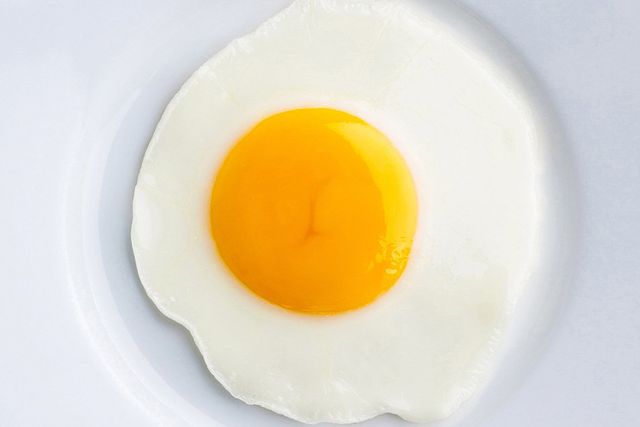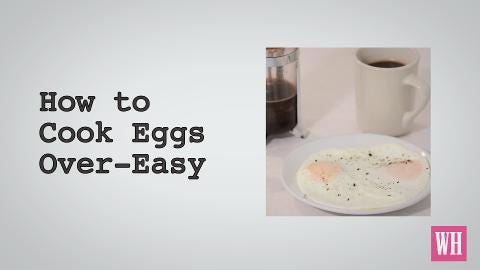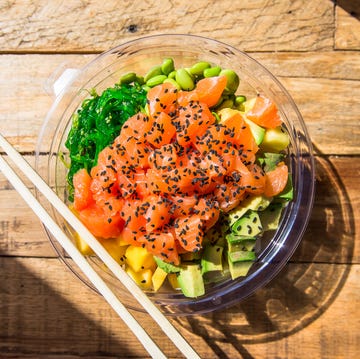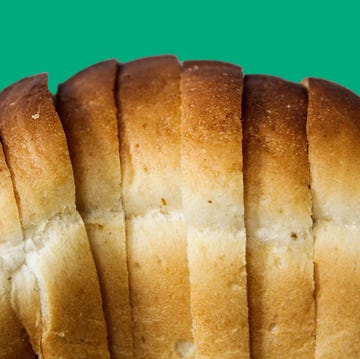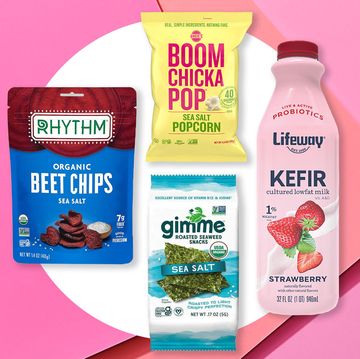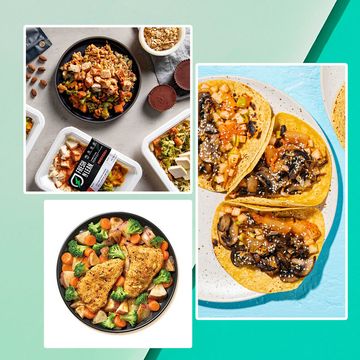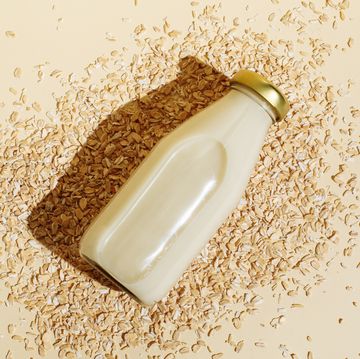We’re not denying that the simple calculation of calories in versus calories out is at the root of weight loss. And while you've got to create a calorie deficit to shed pounds, it doesn’t mean you should be defining your diet solely based off the numbers. In fact, nutritionists say that certain high-cal foods are actually good for your weight-loss journey.
So we called on the experts to give us the high-cal foods that are loaded with nutrients (read: fiber, fat, and protein) and can actually help you slim down.
The avocado toast obsession is real—and for good reason. “Avocados have 80 calories for one-third of an avocado, but they also have nearly 20 vitamins and minerals plus three grams of fiber,” says Samantha Cassetty, R.D., a nutrition counselor and communications consultant. The high-calorie fruit (it’s classified as a berry) is packed with potassium (great for de-bloating) and is also rich in monounsaturated fats. Along with fiber, these fats help keep you fuller longer, decreasing cravings throughout the day. A great way to incorporate avocados into your weight-loss meal plan is to pair them with scrambled eggs—and, duh, your coffee—in the morning, says Marina Chaparro, R.D., a spokesperson for the Academy of Nutrition and Dietetics. That will help you to start your day satisfied and keep you full for hours, she says.
If you're trying to lose weight, opting for egg whites instead of an entire egg might seem like an easy way to save calories, but it might not really help you lose weight in the long run, says Laura Shoenfeld, R.D. Egg yolks are loaded with important nutrients such as vitamin A, B-vitamins, K2, and choline. “These nutrients help support your metabolic function and thyroid health, both of which are crucial for weight loss,” Schoenfeld says. “Egg yolks are one of the most nutrient-dense fats you can eat, so look for other areas in your diet that you can reduce calorie intake and eat the whole egg!”
Learn how to cook eggs over easy:
Related: Why You Should Absolutely Be Eating The Whole Damn Egg—And 5 Creative Ways To Do So
Old-school diet recommendations say that you should only eat low-fat or fat-free dairy, but that might not be super helpful. “Current research shows that populations that consume high-fat dairy have lower rates of obesity than those who consume low-fat dairy,” Schoenfeld says. While these findings could be due to many factors, milk fat contains a fatty acid called conjugated lineoleic acid (CLA), which is thought to improve fat loss, Schoenfeld says. Plus, extra fat from full-fat dairy foods like full-fat Greek yogurt makes you feel more satiated. That means you’ll have the urge to snack less often and eat less overall. Your best bet for eating full-fat dairy while trying to lose weight is opting for the plain versions (see: zero grams of sugar) and adding fruits and nuts to amp up the flavor and texture, says Cassetty. (Hit the reset button—and burn fat like crazy with Women's Health's The Body Clock Diet!)
If you’re looking to lose weight, snacking on a handful of nuts is a great option. That's because they are loaded with protein, fiber, and mono- and poly-unsaturated fats, which work to make you feel satisfied and fuller longer. And the best part is that all types of nuts are weight-loss wonders, Chaparro says. That is, of course, if they’re consumed in the proper portion. “Almonds and pistachios give you the biggest bang for your buck in terms of calories. About 23 almonds or 49 pistachios are equivalent to 160 calories,” she says. When it comes to snacking on nuts though, try not to eat these high-cal babies straight from the bag. Cassetty suggests portioning out quarter-cup servings so you avoid overeating.
Related: 7 Women Share How They Lost Weight Without Counting a Single Calorie
The Mediterranean diet is where it’s at when it comes to eating balanced and healthfully (hello, it includes red wine). So it shouldn’t come as a shock that experts recommend this high-cal Mediterranean diet staple for weight loss. This oil is a polyunsaturated fatty acid, meaning it’s packed with omega-3’s and omega-6’s, which calm inflammation (a common cause of weight gain), says Chaparro. That being said, one tablespoon of olive oil has about 120 calories, so it’s best used for topping a salad and cooking vegetables. Both Chaparro and Cassetty recommend drizzling olive oil over hummus for a satisfying healthy snack when trying to lose weight.

